2/21/12 Posted by Amy Westman, MD (a third year pediatric resident from Kaiser Permanente Oakland in…
Weeks 3 & 4 – Port Maria and Port Antonio
Posted by Chung Lee, MD (a third year pediatric resident from Kaiser Permanente, Oakland serving a global health elective at Issa Trust Foundation in Ocho Rios, Jamaica).
5/31/11
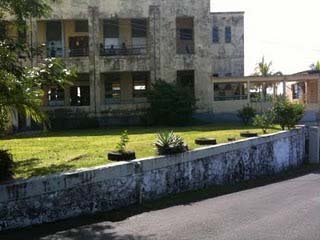
My last week of Port Antonio Hospital was a slow day on the ward as well as clinic, having only 2 patients to be seen in clinic which was a contrast to the previous week which had us working with no breaks up until the moment we left. One was a young girl I diagnosed with inguinal hernia and referred to the Surgeon down the hall and the other was a 7 month old baby who was unable to make it to the appointment but had been referred for evaluation for achondroplasia. I listened to the social worker who was there representing the mother and she explained how the mother had come several weeks to see a pediatrician but that the weeks she had come, there were no pediatricians available and today both were unable to make it due to a complicated social situation. The baby was apparently disproportionate in size with short extremities and a description that fit but had not been formally seen or diagnosed with a genetic condition. Of note, there are also no medical geneticists on the island in addition to other pediatric subspecialties.
On the way back from Port Antonio, the Ministry of Health employee who was kind enough to drive me back the two hours back to the resort explained to me all of the different type of plants and fruit trees lining the road ranging from banana trees, breadfruit trees, mango trees, and ackee trees. I expressed my interest in trying ackee and saltfish which is a national Jamaican dish. He stated the dish was delicious with breadfruit, but he warned me that ackee that is picked too early can be poisonous. Other people who call this dish the Jamaican Rundown, told me that one has to be careful about who you buy your ackee from but that the dish is very delicious. I asked one of the doctors at Annotto Bay about this, and she told me there was recently an outbreak in ackee poisonings this past year with a spike in the number of cases. Due to ingestion of ackee that has not fully matured, the toxin Hypoglycin will lead to hypoglycemia and symptoms of vomiting, stomach cramps, and diarrhea and in severe rare cases, coma or death. I found this useful information to know and has somewhat dampened my curiosity in trying this fruit.
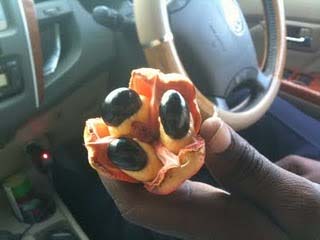
The next two weeks at Port Maria were busy and a week after the departure of my wonderful colleague Dr. Hack, I found myself incredibly busy seeing 26 patients in clinic one day from 9 AM to 4PM. I realized how just like at the end of any rotation, you start feeling comfortable with how things are run right when it’s about time to leave. One of my more complicated cases was a preadolescent boy diagnosed several months ago with HIV but who was not aware about his diagnosis. He came in with 3 weeks of cough and a rash which looked like tinea versicolor. I obtained a chest xray which revealed an infiltrate, keeping in mind that the mother stated he had been on several weeks of an antibiotic which finished a week ago, but now was not on any medications and that his first appointment to discuss his condition was next month. None of this information was located in my paper chart and without any previous labs or other information about which antibiotic he previously was on, I discussed a plan of care with the ER doctor who knew him well and sent him to the A&E for further work-up including a CBC, viral load, CD4 count and initiation of antibiotics.
The rest of my clinic visits at Port Maria in the last two weeks were the same ranging from well checks, scabies, deworming, a variety of skin rashes and referrals to other hospitals for conditions requiring surgical intervention. Three medications that I felt helpful to know were Tropovite Vitamin Drops which contain Vitamin D, Hemafed which contains iron, and Rid Cream for scabies and lice. I would ask to peruse the pharmacy counters before clinic on days I had time because knowing which medications were available in the pharmacy is invaluable to avoid having families paying out of pocket for medications at private pharmacies when alternatives can be easily picked up at no cost here.
Another thing I take for granted in the states are scheduled appointments. I find it hard to take breaks knowing that patients arrive at 9 or 10 in the morning for an appointment. Once a parent even pretended his son was another patient so that he could be seen earlier and I only discovered this after the parent of the actual child asked why they had not been seen yet. Due to this, I have made it a habit of asking the parent the child’s birthdate before starting the visit. I’ve also gotten used to adults randomly walking into my room, even in the middle of a child well check, and start telling me their ailments. I always have to gently cut them off and explain to them that the family practitioner across the hall can aid them and that they have to wait for their turn.
Long lines
Here are a couple of photos of 2 adorable children seen in the clinic: (written consent obtained from parents).
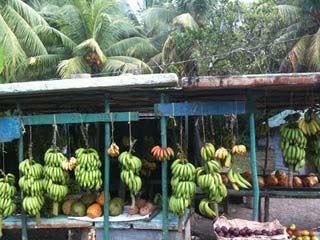
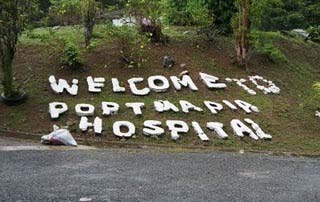
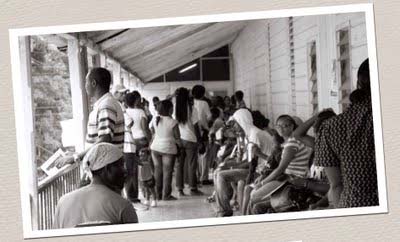
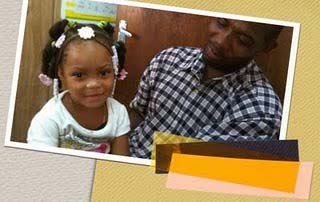
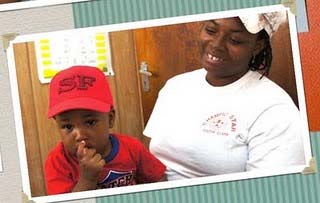
Thank you for writing this entry. I really liked it. Keep up the quality work, dude!
Tinea versicolor can be treated by salicylic acid and other OTC anti-fungals. ,
<a href="My current web page
http://www.healthmedicinelab.com/pain-in-left-side/